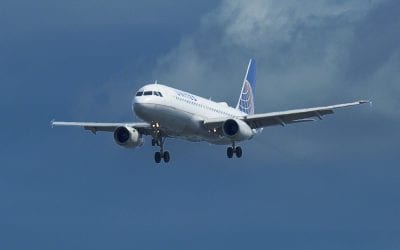The Fourth Amendment may prohibit “unreasonable searches and seizures” and require “probable cause,” but not at the border, according to the 9th Circuit US Court of Appeals, which has ruled that Customs and Border Protection agents could conduct random, warrantless searches and seizures of laptops without probable cause.
The Los Angeles Times tells the story of Bill Hogan, a freelance journalist, who recently returned home from Germany. At Washington’s Dulles International Airport, a Customs and Border Protection (CBP) agent pulled him aside, and said he could reenter the country, but seized Hogan’s laptop for inspection. He had been chosen for the CBP’s “random inspection of electronic media.” They kept his computer for about two weeks.
Since 9/11, CBP agents have been searching and seizing laptops, digital cameras, cellphones and other electronic devices at the border, without search warrants, or probable cause. CBP agents can subject these devices to extensive forensic analysis, according to the courts.
Maria Udy, a UK citizen working for a US global marketing firm, had her company laptop seized by a federal agent prior to flying from Dulles International to London, in December, 2006. The Washington Post reports Udy said the agent told her he had a “security concern” with her. Fourteen months later, Udy’s laptop had not been returned, nor had she been able to find out what happened to it.
In the 21st century, people worldwide keep many of the most intimate details of their lives on their laptops, PDAs and cell phones. Some laptops have become de-facto electronic diaries. You can’t get more personal than that.
At the border, the details of our lives and work are subject to copying, search, and seizure by government agents, at their whim. We don’t even know what they do with all that information, or how, or even if, they keep it private.
In May, the Association of Corporate Travel Executives (ACTE) joined privacy groups asking Congress to hold hearings about CBP’s practice of searching and seizing travelers’ digital information and electronic devices at US borders. ACTE has asked Congress to pass legislation to safeguard fourth amendment rights at the border, and protect the privacy of travelers’ electronically stored information.
In an amicus brief, ACTE and others asked the full 9th US Circuit Court of Appeals to reverse the decision upholding CBP rights to search and seize laptop computers without a warrant or reasonable suspicion.
ACTE Executive Director Susan Gurley expressed my point of view well when she said, “ACTE questions any ruling that allows the government of a free country unlimited power to read, seize, store, and use all the information on any electronic device carried by any traveler entering or leaving the nation – without suspicion or due process.”
Whether or not we agree with ACTE, or the Bush Administration, for now, travelers need to have an electronic’s strategy if they want to protect their privacy, and use of electronically stored information, when crossing the US border.
Security expert Bruce Schneier says your best defense is to clean up your laptop. “A customs agent can’t read what you don’t have. You don’t need five years’ worth of email and client data. Delete everything you don’t absolutely need.”
As an independent consultant when I travel out of the country:
- I use the service, GoToMyPC.com to securely connect to my office, via the Internet, while traveling. I remotely run all my email on my office workstation via my laptop, as well as draft all letters and reports, and access all business and personal records.
- I erase the small amount of data on my laptop which I might have stored on it for meetings or customer support before reentering the US.
- I delete all history, cookies and other browser files after every Internet session on the laptop, and never store any passwords.
The only data left on my laptop, when I come home, are tons of photos which I’ve backed up on a small portable hard drive during my travels.
After many years working in corporate America as a chemical engineer, executive and eventually CFO of a multinational manufacturer, Ned founded a tech consulting company and later restarted NSL Photography, his photography business. Before entering the corporate world, Ned worked as a Public Health Engineer for the Philadelphia Department of Public Health. As a well known corporate, travel and wildlife photographer, Ned travels the world writing about travel and photography, as well as running photography workshops, seminars and photowalks. Visit Ned’s Photography Blog and Galleries.



